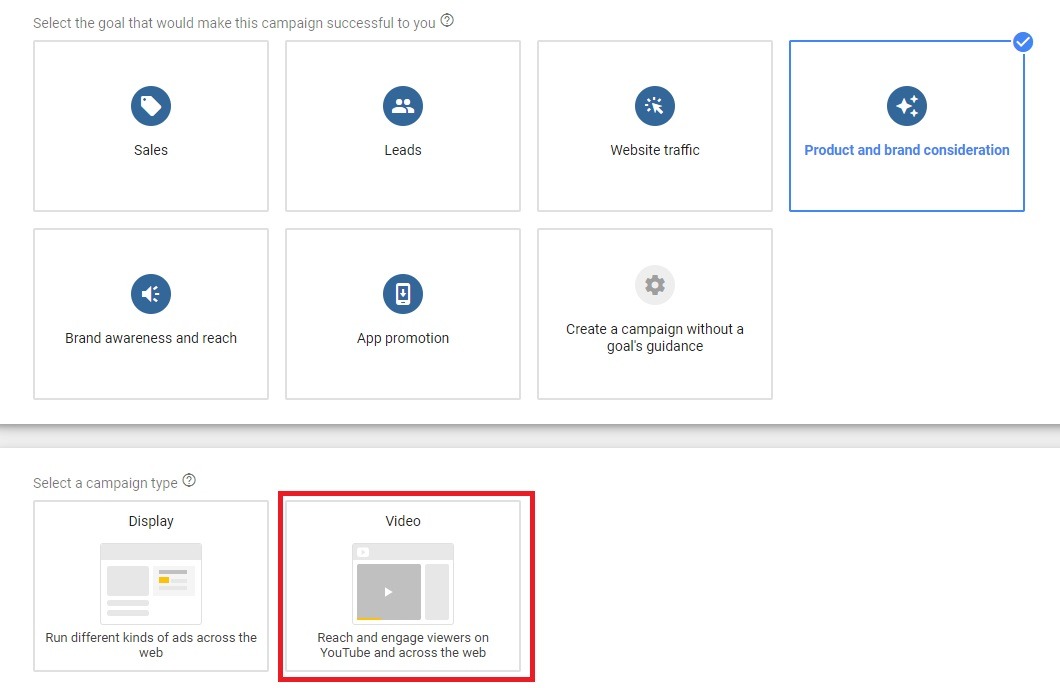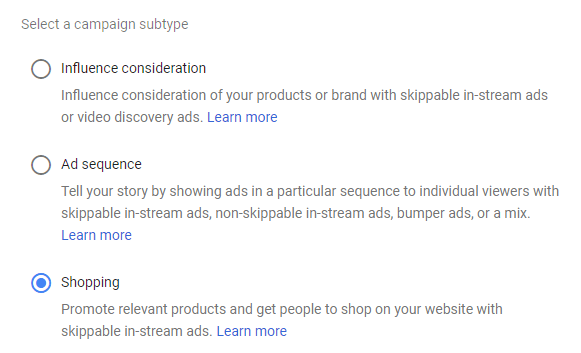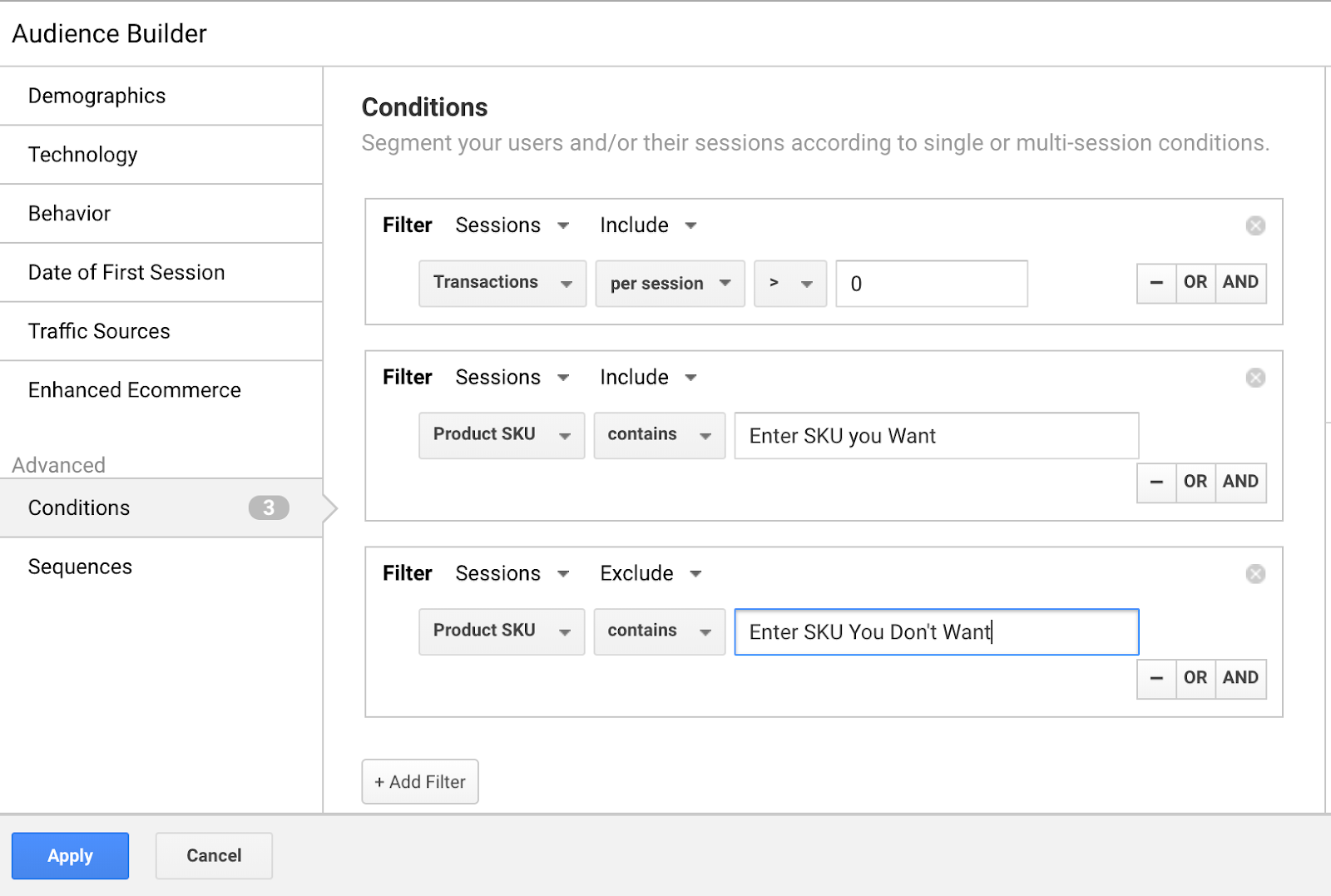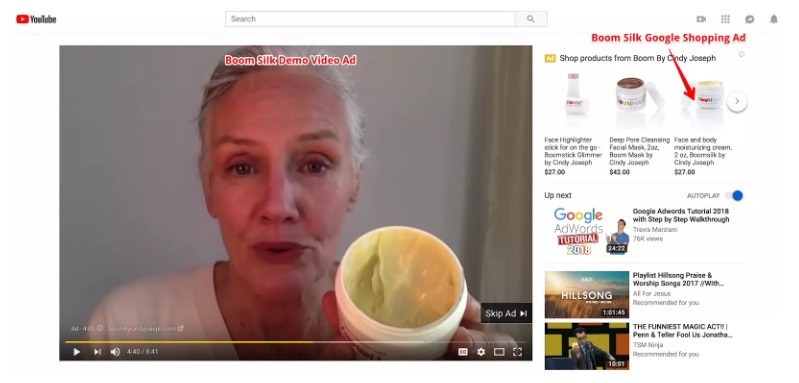What if we told you that you’re leaving money on the table and that your remarketing strategy to recover these sales is incomplete? That’s where an intermediate abandoned cart YouTube ad strategy comes in. AKA: YouTube remarketing ads.
YouTube is the most underused channel when it comes to recovering abandoned cart customers. The thing is, it offers online store owners a robust, converting remarketing strategy, which ultimately separates beginners from successful store owners of growing businesses.
So, how do you use YouTube Ads to recover potential abandoned cart customers so that they convert? The short answer is a sound YouTube remarketing ads strategy.
In this post, we show you just how to build a YouTube remarketing ads, abandoned cart strategy in 6 steps.
1. Lay the Foundation for YouTube Remarketing Ads Success
Before you start building your campaigns, you should have turned on your remarketing lists so that they are populating as you read this. This will ensure you can start your lists as early as tomorrow while you get all your other ducks in a row. Such as creating your video. Remember, the messaging of your video is far more important than its production quality. Meaning, you don’t have to spend a fortune for a video to have viral appeal.
You will also want to test different videos with smaller budgets to find the video that has the most conversions for the lowest possible spend, AKA good ROIs. To know if your campaign is successfully optimized, you want to keep a close eye on the following metrics:
- CPA – cost per acquisition
- VTR – view through rate
VTR is the percentage of viewers who watch your video to the 30-second mark, while your CPA is how much you spend to get one conversion.
Side note: For VTR, you want to aim for no less than 20%, while a 35-50% VTR is considered awesome.
2. Segment Your Cart Abandoners
The next step in using YouTube TrueView to get abandoners back on your site is creating your YouTube remarketing ads list. Even if you’re already running one big remarketing list, you will want to create more segmented lists specifically for these campaigns.
To do that, you will want to divide your segments into hot (3 days), warm (7 and 15 days) and cold (30 days) lists.
Why?
Because then you will be able to personalize these ads to appeal to a shopper who abandoned your cart, depending on how far back they did so. Furthermore, you’ll be able to offer different promotions that target hot, warm or cold potential shoppers to maximize potential.
Beginner Tip: You can set up your lists in either Google Ads or Analytics, however, we suggest building them in Google Analytics.
To create your cart abandoner segment list, you will need to:
- Create conditions that limit the audience to those sessions where a site visitor clicked through to your checkout page but didn’t reach the sales confirmation page
- Set the membership duration to the number of days you are building the list for (3, 7, 15 or 30 days
- Repeat until you have four lists, one for each time frame
3. Build Your YouTube Remarketing Ad Campaign Sequence
Now you’re ready to build your remarketing campaign sequences. To do this, you will need to create four campaigns, each targeting one of the four lists we made above. You will also need to ensure you exclude those shorter-duration lists. So your campaigns could look a little something like this:
Campaign one (3 days)
Targeting: cart abandoners from 3 days ago
Message: simple reminder with product benefits
Campaign two (7 days)
Targeting: cart abandoners a week after
Message: small promotion, like free shipping or discount
Campaign three (15 days)
Targeting: cart abandoners 15 days after
Message: another promotional offer
Campaign four (30 days)
Targeting: cart abandoners 30 days after
Message: bigger discount or free gift
But remember, for each remarketing campaign you will want to ensure you exclude those shoppers who buy during the time of your campaigns. This will stop your customers from getting annoyed by your ads and fight ad fatigue. You can do this as follows:
4. Harness the Converting Power of Google Shopping
Now, this is where it gets interesting! Once your YouTube remarketing ads lists and pre-roll campaigns are ready, it’s time to harness the power of Google Shopping to push your conversions. This means integrating a Product Listing Ad (PLA) with your YouTube video ads for great results.
You can integrate this ad structure by selecting ‘product and brand consideration’ as your campaign goal and ‘shopping’ as your subtype campaign.
After which you can choose those specific products from your Merchant account that you want to match with your ads.
Alternate Strategy: Don’t want to highlight specific products? Opt for the ‘TrueView for Action’ subtype over shopping to create a companion banner.
5. Segment Out Your Converters
Lastly, remember those converters you excluded from your previous campaigns? It’s now time to make a list of these and other customers so that you can strategically retarget them back to your store using YouTube remarketing campaigns. Like with step two, we suggest you use Analytics to build your new audience of ‘users who completed a transaction.’
Click: Admin > Audience Definitions > Audiences > New Audience
Select: ‘Users who completed a transaction’ from Audience definition
Here you will put time windows that are related to your customers’ repurchase cycles, such as after 30, 90 or 180 days. If your products are highly consumable or limited, you would choose a shorter window; if your products are non-consumable high-end products like expensive jewelry or top-of-the-line electronics, your window will be shorter.
You can then create campaigns aimed at this audience – at different windows – that offer new products, designs or promotions. One campaign idea worth trying is nicknamed “Bought X, not Y” by Ezra Firestone. Here’s the breakdown of his strategy.
How to Create Campaigns That Push Supplementary Products
When a target shopper from your YouTube remarketing campaign buys a specific product from you, you could then create a campaign that pushes supplementary products to that product.
For example, let’s say you’re an online clothing store and a customer bought a top but not an accessory such as a belt or jewelry. You can then create a campaign that suggests these accessories to the buyer.
Or let’s say you are selling purifiers and a customer bought a purifier but not the filters. You could create a campaign specifically targeting your filters to these shoppers.
The trick is to keep these very segmented.
You want to create a list of customers who have purchased from you, who have all bought a certain product – allocating the relevant SKU. Additionally, you will need to ensure they haven’t yet bought the supplementary product – allocating the relevant SKU.
You will then set up a ‘TrueView for shopping’ campaign to upsell these supplementary or complementary products to that specific list. Here’s an example of this campaign in action by Sumo, used in their case study.
6. Move YouTube Non-Converters to Google Shopping
Lastly, what do you do if you for all the users of these audiences that don’t convert after your timed YouTube video campaigns have run? Move them to Shopping.
The thing is, just because someone doesn’t click immediately after they have seen your YouTube remarketing ads, it doesn’t mean they aren’t interested. In fact, there is a big chance they did a quick Google search for your products or brand instead. Which is where Google Shopping remarketing ads come into play.
What you want to do is create an ‘observation’ audience that targets YouTube 7 days after they viewed your YouTube video without converting.
—
Are you ready to use YouTube ads to recover abandoned carts? Yes, you are! By combining the power of video, remarketing and Shopping, you can bring those potential shoppers back your brand and increase your conversion chances. Which is why YouTube remarketing ads are so powerful!
However, if you do find that your potential customers are abandoning your cart at an above-average rate, even the perfect campaign strategy won’t help you. You will need to review your pages and look for reasons they may be opting to not complete the sale.
Here are some of the top reasons why your customers are not clicking ‘Buy’:
- A long, confusing checkout process
- Misleading or hidden costs that only show up in your cart
- Having to create an account to complete the transaction
- High shipping costs
- Lagging website and page




